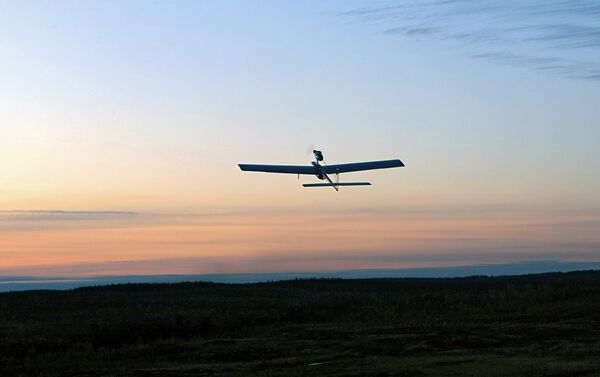MOSCOW, May 7 (RIA Novosti) – Drones could become an important weapon in the arsenal of nature conservation, as a non-profit group fights to make them affordable for developing countries, Lian Pin Koh, one of the founders of Conservation Drones, said in a TED speech in Australia.
“Conservation drones began as a crazy idea from two biologists who are just deeply passionate about this technology. And we believe, strongly believe, that drones can and will be a game changer for conservation research and applications,” Koh said in the speech.
The non-profit group Conservation Drones, founded by two ecologists three years ago, has launched a worldwide initiative to use low-cost unmanned aerial vehicles (UAVs), or drones, to help monitor and preserve wildlife, especially in the tropics.
Drones can be activated by movement to photograph animals and record environmental changes, as well as illegal human activities, such as poaching and deforestation, and then transmit data and images by radio.
Some newer UAVs are equipped with infrared cameras, which can spot poachers and their fires at night, Lian Pin Koh said.
The first such drones were tested in Switzerland, and then deployed in Indonesia, Southeast Asia, Africa and Australia.
In one of Kenya’s national parks, drones helped reduce poaching by 96 percent, according to the Guardian newspaper. Equipping other Kenyan national parks with UAVs is estimated to cost $103 million and will be sponsored by the US, Europe and Canada.
The International Anti-Poaching Foundation and Sea Shepherd Australia have become strong supporters of the idea of low-cost UAVs, which could replace vehicles, ships, radars and tracking devices. So far, however, the old methods have been more effective, they say.
James Brook, a ship manager with Sea Shepherd Australia, told the Guardian his organization has used drones to attempt to monitor whaling vessels, but will wait for drones to improve before ecologist can rely on them entirely.
“The more effective techniques have been using ships, radars and tracking devices that we put on whaling vessels, and camera people in helicopters. But if the technology improves and we are given extra funding, we would certainly be open to further use of drones,” Brook said.
Should the price of drones drop and the technology mature, it will be the new word in the world of nature conservation, Koh says.




